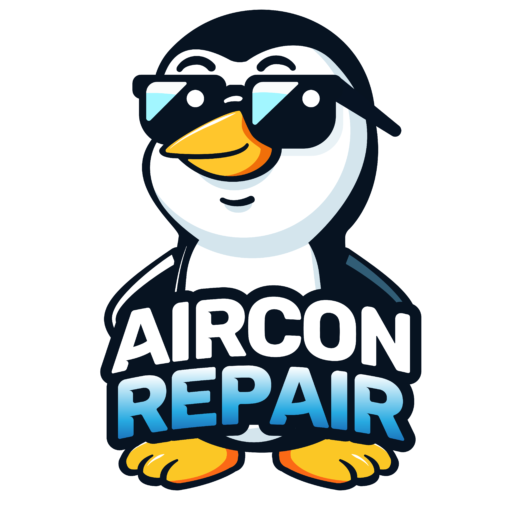Air conditioners play a vital role in keeping homes and buildings comfortable, especially during hot summer months. But beyond cooling power, energy efficiency is now one of the most important factors homeowners consider when choosing an air conditioning system. So, how efficient are air conditioners, and what can you do to maximize their performance while minimizing your energy bills? This comprehensive guide explores how air conditioner efficiency is measured, the most efficient types of systems, and expert-backed tips to help you make the most out of your cooling system. Whether you’re shopping for a new unit or want to improve your current AC’s performance, understanding efficiency ratings and influencing factors is key.
Understanding Air Conditioner Efficiency
The efficiency of air conditioners refers to how well the unit can cool a given space while consuming the least amount of electricity. The higher the efficiency, the less energy it takes to maintain a comfortable indoor temperature. In practical terms, an efficient air conditioner lowers your utility bills, reduces environmental impact, and extends the life of your HVAC system.
Understanding Efficiency Ratings for Air Conditioners
To accurately measure how efficient air conditioners are, various standardized metrics are used:
1. SEER (Seasonal Energy Efficiency Ratio)
SEER is the most common metric for measuring the overall energy efficiency of air conditioners during an average cooling season. A higher SEER rating indicates better energy efficiency.
- Modern SEER Range: 14 to 25+
- ENERGY STAR Certification: Requires a SEER of 15 or higher
- Ideal For: Central air conditioners in varied climates
2. EER (Energy Efficiency Ratio)
EER measures efficiency under specific, steady conditions, typically at an outdoor temperature of 95°F. It’s a good benchmark for hot and dry regions where consistent high temperatures are common.
- Typical Range: 8 to 12
- Ideal For: Comparing window or portable units in hot climates
3. CEER (Combined Energy Efficiency Ratio)
CEER includes the energy used while the unit is running and the energy consumed in standby mode. This rating is specific to room air conditioners like window units.
- Ideal For: Window units used in bedrooms, dorm rooms, or small apartments
Types of Air Conditioners and Their Efficiency Levels
Not all air conditioners are built the same. The type of unit you choose plays a major role in how efficient your cooling system will be.
Central Air Conditioning Systems
Central ACs are the most common in residential homes. Their SEER ratings vary widely, from the federal minimum of 14 to 25 or more for premium models.
- Pros: Whole-house cooling, better airflow control
- Cons: Ductwork inefficiencies can reduce overall system performance
Ductless Mini-Split Systems
These systems are among the most energy-efficient air conditioners available. They allow for zoned cooling and typically have SEER ratings above 20.
- Pros: No duct losses, individual zone control
- Cons: Higher upfront costs
Window and Portable Units
Generally less efficient than other types, with EERs ranging from 8 to 12. They are ideal for spot cooling smaller areas.
- Pros: Low cost, easy installation
- Cons: Higher operational cost over time
Geothermal and Hybrid Heat Pump Systems
These are premium cooling systems that leverage renewable energy sources and advanced technology to deliver the highest levels of efficiency.
- Pros: Exceptional energy savings, year-round comfort
- Cons: High installation cost, longer ROI period
Factors That Affect the Efficiency of Air Conditioners
Even the most efficient air conditioners can underperform if certain factors aren’t addressed. Here are key elements that directly influence performance:
1. Proper Sizing
An undersized AC will run constantly without effectively cooling the space, while an oversized unit will short cycle, leading to energy waste and uneven cooling.
2. Home Insulation and Air Sealing
A well-insulated home helps trap cool air inside, reducing strain on your AC unit.
3. Thermostat Settings
Setting your thermostat to 78°F (26°C) during summer strikes a balance between comfort and efficiency.
4. Routine Maintenance
Clogged filters, dirty coils, and blocked vents all reduce efficiency. Regular maintenance can improve performance by 10–15%.
5. Smart Zoning and Automation
Zoned cooling allows you to cool only occupied areas, minimizing energy waste.
How to Improve Air Conditioner Efficiency
Want to get the most out of your existing system? Here’s how to boost the efficiency of air conditioners without replacing them:
- Upgrade to ENERGY STAR® units: These are certified to meet strict energy performance standards.
- Use ceiling or oscillating fans: They help circulate cool air more effectively.
- Close curtains during peak sun hours: This reduces heat gain and lessens the cooling load.
- Avoid heat-generating appliances: Try to limit oven or dryer use during the hottest part of the day.
Efficiency of Today’s Modern Air Conditioners
Today’s air conditioners are vastly more efficient than models from even a decade ago. Technological advancements and stricter energy regulations have made new systems capable of delivering up to 50% more efficiency than older units.
Inverter Technology
Inverter ACs adjust the speed of the compressor motor based on cooling needs, rather than cycling on and off like traditional units.
- Result: Lower energy consumption and more consistent indoor comfort
Heat Pump Air Conditioners
These units offer both heating and cooling with remarkable efficiency, often making them ideal year-round solutions.
- Bonus: Many qualify for tax incentives or rebates due to their low energy use
Conclusion
Understanding and improving the efficiency of your air conditioner can lead to significant energy savings, enhanced comfort, and a reduced environmental footprint. By focusing on key factors such as proper sizing, routine maintenance, and energy-efficient features like inverter technology, you can maximize your cooling system’s performance. Whether you’re considering a new unit or optimizing your current one, choosing the right type of air conditioner with a high SEER or EER rating, and utilizing energy-saving practices, will ensure a more efficient cooling experience. Investing in an ENERGY STAR®-certified unit or a heat pump can further enhance savings and comfort.
